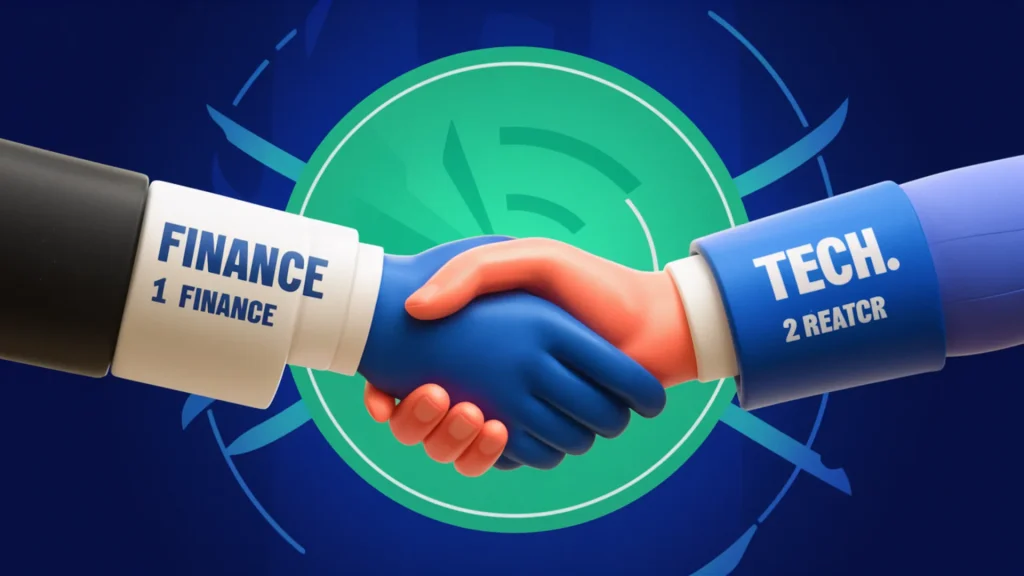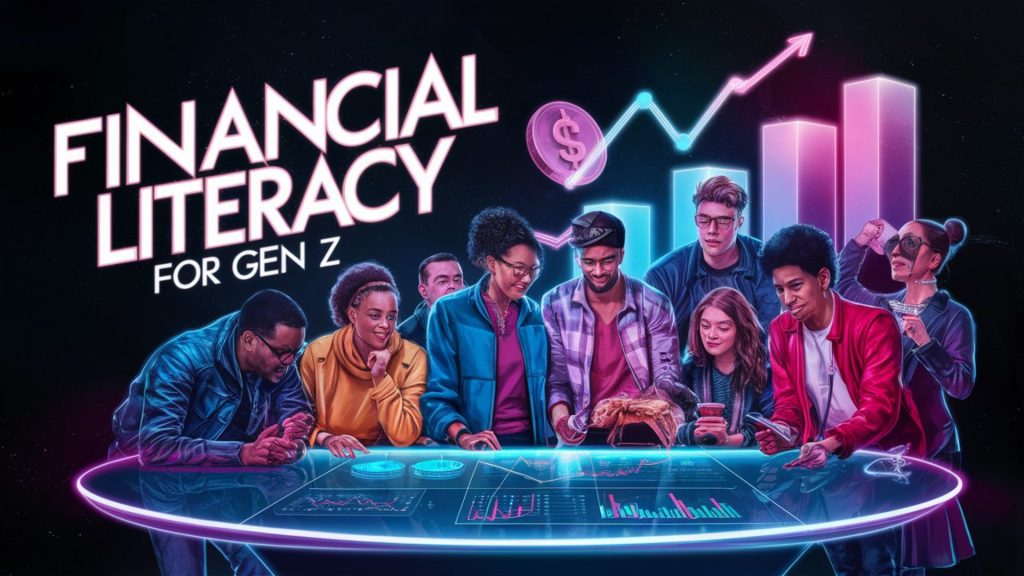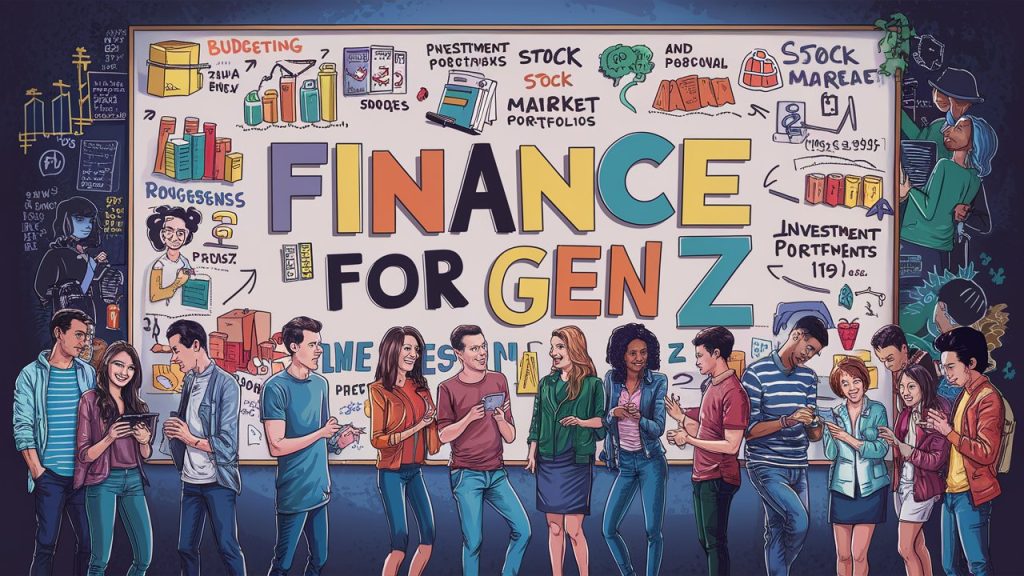Gen Z is entering the financial world with a fresh perspective, reshaping financial literacy through innovative tech solutions. As a generation that has grown up in the digital age, their approach to managing money differs significantly from previous cohorts. Here’s what sets them apart:
- Tech-Savvy: With smartphones in hand, they prefer using apps over traditional methods for learning about finance.
- Community-Oriented: They seek guidance from peers and influencers rather than relying solely on conventional financial advisors.
- Ethical Mindset: Gen Z emphasizes sustainability and social responsibility in their investment choices.
These unique preferences highlight the challenges faced in achieving financial literacy. Access to reliable education has transformed, often leaving young adults navigating misinformation online.
A key takeaway emerges: technology, particularly through apps and social media influencers, is pivotal in enhancing financial understanding among young adults. The integration of these tools not only simplifies complex concepts but also makes learning accessible and engaging. As Gen Z continues to harness tech innovations, the landscape of financial literacy evolves dramatically, paving the way for smarter financial habits in the future.
Understanding Financial Literacy for Gen Z
Financial literacy means having the knowledge and skills to manage your personal finances effectively. This includes things like budgeting, saving, investing, and understanding credit. For Gen Z, it’s really important to understand these concepts as they deal with a financial world that is becoming more complicated.
The Shift in Financial Culture
In recent years, there has been a significant change in the way people think about money. Traditional views on finance are being challenged by new ideas about how to manage money. Young adults today are prioritizing experiences over material possessions, which often leads to different spending habits. This shift requires a better understanding of financial principles that align with their lifestyles.
The Challenges Gen Z Faces
Gen Z faces some unique challenges when it comes to becoming financially literate:
- Limited access to traditional education: Many schools do not include personal finance in their curricula, leaving young people without foundational knowledge. This gap in education highlights the need for a more comprehensive approach to teaching financial literacy.
- Prevalence of misinformation: The internet offers a wealth of information, but not all of it is accurate or reliable. Conflicting advice can lead to confusion and poor financial decisions. It’s crucial to counter disinformation with reliable resources.
These challenges, combined with the changing cultural norms, create an urgent need for new and innovative ways to teach financial education specifically designed for this tech-savvy generation. As we’ve seen in recent studies, the new normal in 2025 will be far more tech-driven presenting more big challenges that require a solid understanding of financial literacy.
Tech Innovations Driving Financial Education for Young Adults
The world of finance is undergoing a transformation, thanks to fintech innovations. This term refers to the integration of technology into financial services, making it easier for young adults to access and understand their finances. Gen Z, with its digital-first mindset, is perfectly positioned to benefit from these advancements.
Popular Financial Education Apps
Several apps have emerged as frontrunners in providing financial education tailored for young users. Here’s a quick look at some favorites:
- Mint: This budgeting app allows users to track spending, create budgets, and set financial goals. Its user-friendly interface makes managing money less intimidating.
- YNAB (You Need A Budget): Focused on proactive budgeting, YNAB teaches users how to allocate every dollar they earn. Its emphasis on personal responsibility resonates with Gen Z’s desire for financial independence.
- PocketGuard: By simplifying expense tracking and showing how much disposable income remains after bills and savings, this app empowers users to make informed spending decisions.
These apps not only provide essential tools but also educate users about smart money management through engaging content and features.
Innovative Fintech Solutions
Beyond traditional apps, there are emerging fintech solutions specifically designed for Gen Z’s unique needs:
- Chase First Banking: In partnership with Greenlight, this banking initiative offers a platform where younger users can learn about budgeting and saving within a safe environment. Parents can monitor transactions while enabling their children to manage their own finances.
- Step: Collaborating with influencers like Charli D’Amelio, Step combines no-fee banking services with educational resources aimed at teens. Its approach blends social influence with practical finance tools.
- Mozper: Tailored for Latin American families, Mozper focuses on teaching financial literacy through parental controls that allow tracking of spending and managing allowances.
Voices of Gen Z Influencers
Interviews with prominent Gen Z influencers reveal their perspective on financial education. Many emphasize the importance of relatable content that demystifies complex financial concepts. They advocate for using social media platforms to share insights and tools that enhance understanding. Their recommendations often include the very apps mentioned above, showcasing a blend of personal experience and tech-savvy knowledge.
Future Trends in Fintech
The horizon looks promising for fintech innovations aimed at enhancing financial literacy among young adults:
- AI-driven Personalized Financial Advice: Imagine having an app that provides tailored advice based on individual spending habits and financial goals. This could make financial education more accessible and relevant.
- Gamified Learning Experiences: Platforms that incorporate game-like elements can transform learning about finance into an engaging experience. This approach appeals directly to Gen Z’s preference for interactive content.
As fintech continues to evolve, it holds the potential to reshape how young adults engage with their finances. The combination of innovative technology and community-driven learning ensures that Gen Z will navigate the complexities of personal finance with confidence and skill.
Moreover, these advancements are not just limited to apps and online platforms. There’s also a significant push towards **[enhancing financial literacy through technology](https://medium.com/@ayushis.nmims/enhancing-financial-literacy-through-technology-

Learning from Influencers: The Role of Social Media in Financial Literacy
The rise of ‘finfluencers’—financial influencers—on platforms like Instagram and TikTok has changed the way Gen Z interacts with personal finance. With millions of followers, these individuals have turned financial education into a relatable and entertaining experience. Their content often mixes humor, creativity, and straightforward advice, making complex financial ideas easier to understand for young audiences.
Impact on Perception
1. Peer Influence
Unlike traditional financial advisors, finfluencers present information in a peer-to-peer format. This relatability builds trust and encourages young adults to take control of their financial journeys. Research shows that a significant number of young people are turning to social media for investment advice, highlighting the growing influence of these online personalities.
2. Engaging Content
Short videos, memes, and infographics make learning about finance enjoyable. Topics like budgeting, saving, investing, and debt management are packaged in bite-sized formats that resonate with the digital-native lifestyle of Gen Z.
3. Breaking Taboos
Finfluencers talk about topics that are usually considered taboo—like student loans, credit scores, and spending habits—creating an open conversation around these important subjects.
Insights from Notable Gen Z Influencers
Interviews with well-known Gen Z influencers show their different ways of teaching about money:
- Savannah McIntosh (@savvy_savannah): Known for her fun budgeting tips, Savannah emphasizes the importance of tracking spending. “Using apps like Mint helps me visualize my finances,” she says. Her engaging style encourages followers to share their budgeting successes.
- Dylan Leach (@dylan_the_finance_guy): Dylan focuses on investing for beginners. He recommends platforms like Acorns for easy entry into the stock market. “Investing shouldn’t be scary,” he says. “I aim to simplify it so that anyone can start.”
- Talia Kim(@moneywithtalia): A strong advocate for ethical investing, Talia highlights the importance of supporting sustainable businesses. “I use tools like Stash to invest responsibly while learning about companies that align with my values,” she explains.
Tools They Recommend
The tools suggested by finfluencers often reflect what Gen Z likes:
- Budgeting Apps: Mint and YNAB (You Need A Budget) are frequently mentioned for their easy-to-use designs and practical features made for younger users.
- Investment Platforms: Many influencers promote apps like Robinhood and Acorns for their accessibility and educational resources.
- Community Engagement: Finfluencers encourage followers to join online communities where they can ask questions, share experiences, and learn together.
This shift towards community-driven financial education shows how social media is not just a platform but also a powerful tool in shaping how young adults think about managing money. By being relatable and engaging, finfluencers are making finance a topic that matters to Gen Z.
Moreover, this trend underscores the importance of financial literacy, which is essential not only for personal success but also for fostering responsible financial behavior among young adults. As we embrace this new era of learning driven by influencers on social media

Future Trends in Fintech Enhancing Financial Literacy
The world of financial literacy is about to change significantly as technology keeps improving. Gen Z, who are already using digital tools to manage their money, are leading the way in these changes. Here are some exciting future trends in fintech that could boost financial education for young adults:
AI-Driven Personalized Financial Advice
Artificial Intelligence (AI) is set to transform personal finance by providing customized advice based on individual behavior and goals. Picture a scenario where:
- Financial apps analyze spending patterns and offer insights on how to save more effectively.
- Users receive tailored budgeting plans that adjust in real-time as their financial situation evolves.
This level of personalization not only improves understanding but also encourages proactive money management. Gen Z, already skilled at using technology, will find such innovations attractive and beneficial.
Gamified Learning Experiences
Gamification is gaining popularity within fintech, making learning about finances engaging and enjoyable. By incorporating game-like elements into educational platforms, companies can capture the attention of young users. Some examples include:
- Khan Academy’s Personal Finance Course: This platform uses interactive exercises and quizzes to teach essential concepts in a playful manner.
- Zeta, which offers a gamified approach for couples managing shared finances, encouraging teamwork and communication through challenges.
These experiences motivate users to learn while enjoying the process, making financial literacy less intimidating.
Ethical Investing Trends
Gen Z shows a growing interest in ethical investing, focusing on sustainability and social impact. As awareness around environmental issues increases, fintech platforms are adapting:
- Investing apps like Acorns now allow users to invest in portfolios that prioritize socially responsible companies.
- Platforms like Betterment provide options for impact investing, enabling users to align their portfolios with their values.
This trend not only reflects changing attitudes towards money but also reinforces the idea that investing can be a force for good.
Existing Platforms Leading the Charge
Several platforms have already started incorporating these trends into their offerings:
- Stash provides educational content alongside investment opportunities that appeal to Gen Z’s values and interests.
- Robinhood, while known for its commission-free trading, also emphasizes user education through simplified resources and engaging tutorials.
These innovations pave the way for a more informed generation that prioritizes both personal finance proficiency and ethical considerations.
As technology evolves, the combination of fintech advancements and financial literacy will undoubtedly shape how young adults view and handle their finances. The future looks promising with endless possibilities for improving understanding and involvement with personal finance among Gen Z.
Conclusion
The world of financial literacy is changing quickly, mainly because of the creative mindset of Gen Z. This generation is using technology, which allows fintech to grow and create tools that directly meet their specific needs for consumer education and mindful consumption.
Here are some important things to keep in mind:
- Continuous innovation is vital to address the shifting financial literacy demands of young adults.
- Exploring various tech tools can significantly enhance understanding of personal finance.
It’s encouraging to see that Gen Z isn’t just passively consuming; they’re actively involved in managing their finances. By using fintech solutions and adopting a learning mindset, they can confidently navigate the complexities of money management. The future looks promising, with these tools readily available to them.

